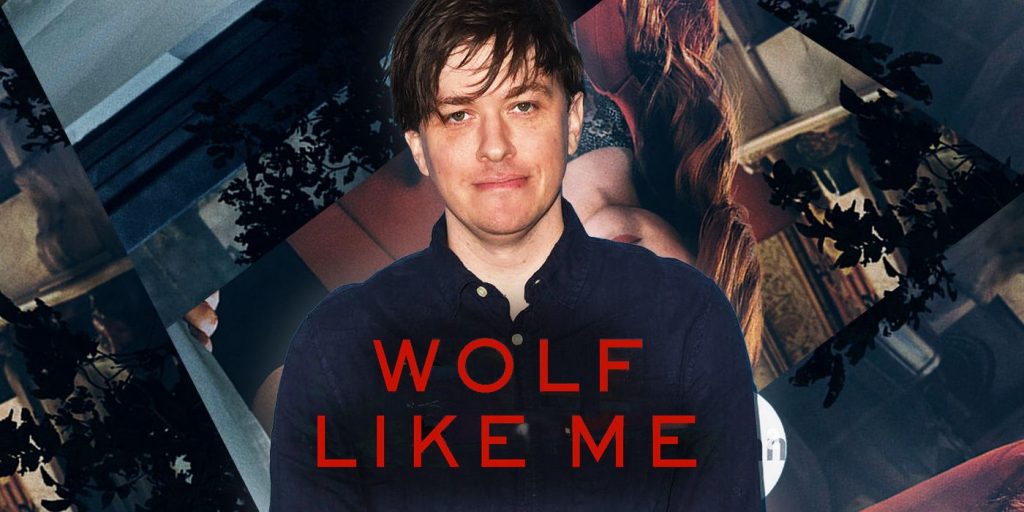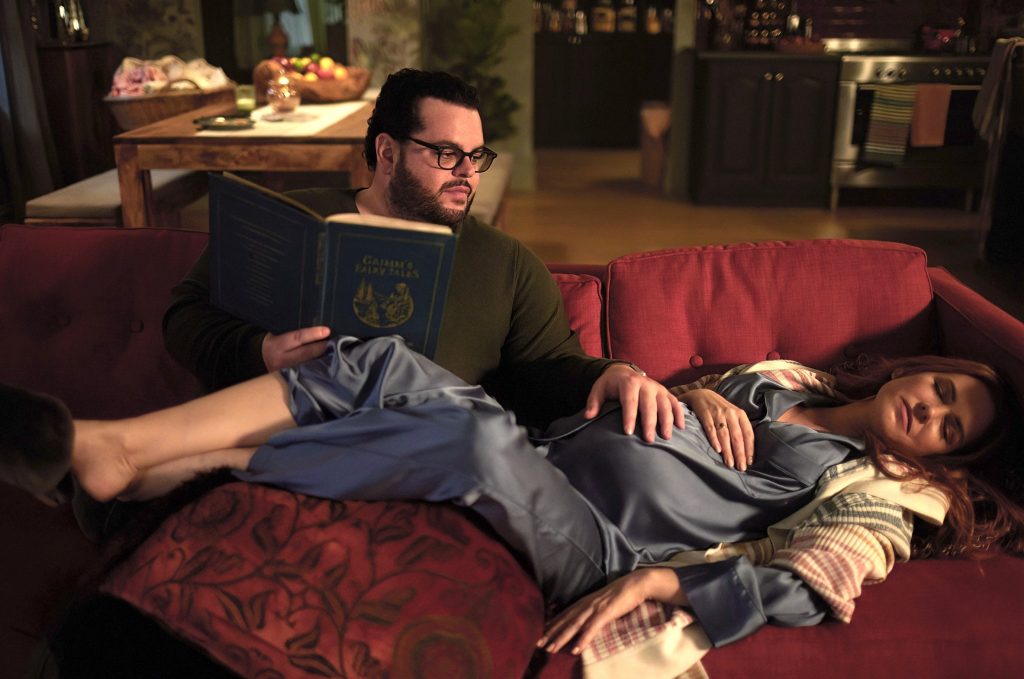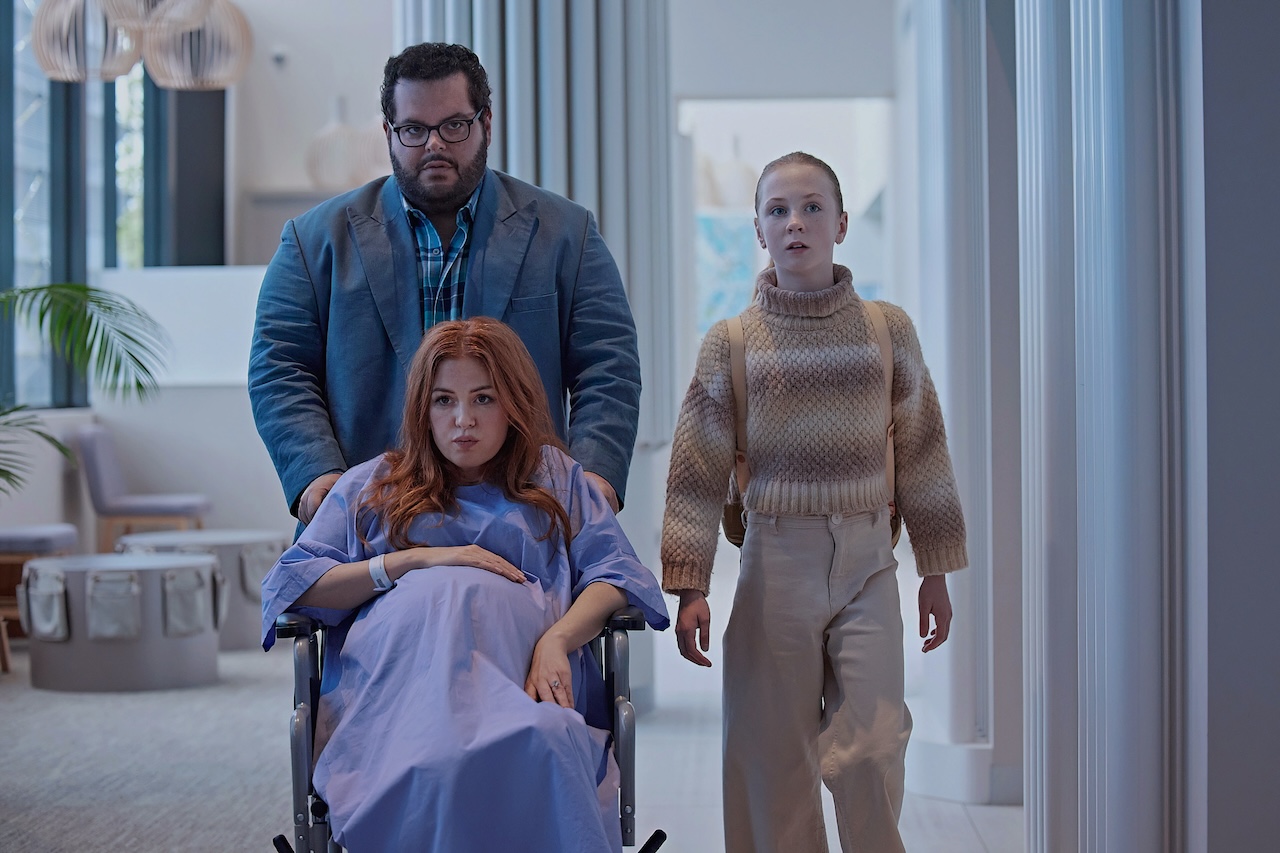The son of an actor, Australian screenwriter Abe Forsythe grew up around creatives. “I spent a lot of time backstage as a kid,” he says. “Sitting in the green room, watching Dad perform, subconsciously it made me realize you can have a career following your creative path.”
Outside of his immediate influences, Forsythe was influenced by the early work of Peter Jackson, specially a horror film called Bad Taste. “I became obsessed with it. There was something about the fact that he made that movie on his own, shot in New Zealand over four years, playing two roles himself, and doing the effects himself.”
This self-reliant approach, along with watching other Jackson films like Braindead with an audience, sparked something inside of Forsythe. “Seeing his progression from Bad Taste to Meet the Feebles to Brainddead to Heavenly Creatures, I thought, ‘This guy can do anything.’”
“I feel like I’m still chasing how those movies and those experiences made me feel.” In his own work, Forsythe has gained some notoriety for films like Down Under, Little Monsters, and the recent series, Wolf Like Me. “I’m trying to connect to that inner child,” says the screenwriter.

Abe Forsythe
Blending the personal within the lanes of genre, the show is about an emotional wreck named Gary (Josh Gad) who struggles to provide for his daughter after the death of his wife. This is when he meets Mary (Isla Fisher), a woman with a howling secret she can’t bring herself to tell another being.
The First Film – Take It Slow
“Don’t expect it all to happen immediately,” Forsythe advises novice filmmakers and screenwriters hoping to break into the industry. “Have the confidence of knowing you’re going to fuck up a lot. When you fuck up, it doesn’t mean you can’t do it, it means you won’t make that mistake again.”
“Gradually,” he continues, “The more things you make, the more experience you have to draw back on [to avoid mistakes] in the story or in the edit. For me, it’s just been a gradual accumulation of understanding the rules that work for me and negating the ones that don’t.”
At the age of 15, Forsythe left school to write screenplays. “They’re terrible,” he jokes. “But after a while, I was instinctively better. Leaning into the right things to move forward or even recognizing if there’s a story there in the first place.”
For the screenwriter/director, he needed to literally “grow up” to make this distinction. “I had to grow up enough to experience that. My son coming into my life twelve years ago gave me something to actually communicate through my work. Everything has been inspired by my experience raising him as a father.”

Gary (Josh Gad) and Mary (Isla Fisher) Photo by Narelle Portanier/ Peacock
To further this point for all creatives, he adds, “You need to keep living your life in order to be able to have something to communicate through your work. If you make it all about your work, you’re not living your life and you’ve got nothing to say. I need time between projects to go and refuel and find those things to say.”
“Early on, I just wanted to make stuff. That’s shit stuff. As opposed to, I need to do this because I’ve had this experience and need to communicate it and figure it out in my own way. What a great way to do that, in having characters that can go with you on that journey to understanding yourself.”
Writing Spec Scripts – Know When To Stop Or Keep Going
A lot of novice writers do not fully grasp the importance of writing a spec script, not only as potential marketing material, but to lead to monumental growth as a screenwriter. “I’ve done a lot of second drafts where it doesn’t work and I just have to throw it away.”
This is somewhat of a painstaking experiment, but it’s what works for him. “Don’t try to fix it because you spent all of this time as an investment. Realize that if you forced it and are then trying to make the thing afterwards, it’s still crap. You have to have the confidence of knowing when to stop.”
The screenwriter sees spending three to four months working on multiple drafts as a learning experience. “That’s now going to inform you to keep going in the direction where you can make things that do work. I certainly don’t want to make anything to be famous. That was never a goal.”
“I keep trying to lean into what I’m feeling and what I’m trying to say. If I keep doing that, the career will work itself out one way or another. Working on stuff that’s creatively high stakes takes a lot from you. You take on so much stress, so if you’re going to do that, have it be something that is teaching you about your own life at that time as well.”
In some ways, this is its own safety net. “If my career falls over, I won’t look back on any of this time [negatively], because I was working out my life through the stories I was telling, rather than telling stories for the hell of it.”
This also creates a sense of urgency because “now” is already the right time to tell the story in your life that you’re most obsessed with. “That’s been a really good litmus test for me in choosing what I work on.”
Writing Wolf Like Me
Currently, Forsythe is planning Season 3 of Wolf Like Me that parallels his own life, along with a spec script he wrote during the WGA strike for a similar struggle he was working through at the time. “It’s very different, but it’s an idea that I need to do. We need to work out a way to make that happen.”
These personal parallels aren’t just how he gets through the script, but they’re also how he connects with others in the business and eventually, with the audience. “Wolf Like Me and Little Monsters got the financing because I could explain how it relates to my life and how it can relate to everyone’s life.”
“I know that if I’m going in, talking about something that comes from me personally, I’m already actively invested in the story when I communicate it to other people. It’s not just a job. I’m not a director for hire. It’s more like, ‘Help me articulate this. This is something we all go through.’ It makes people more engaged, and gives you the resources to make something.”
As he rewatched Season 2 of Wolf Like Me, it wasn’t until it hit the streamer that the reality of what he had made sunk in. “I watched it with my girlfriend and it was bizarre. Watching Season 2, a big part of me was like, I made this? I didn’t know the tone would be exactly this. It was quite surreal. I’m still discovering what I’m making even after I’ve made it. That’s the evolution.”
The original idea for the first season came from his own experience of dating with a child. “I had all these questions about dating. I met someone who I thought could have been that person. I was driving around and it happened to be a full moon. I was thinking, what if X was a werewolf? If this person makes my son’s life better, you make the werewolf problem work. That was the fun way of exploring that. I was telling that story in the pitch. People were invested because it was important to me.”
Advice for Writers
As a writer/producer/director, he says he “needs to write in order to work out how to direct.” He continues, “If I’m the person having to figure out every line of dialogue, every word, it does force me to think of what it would be like on set, how to direct the scene, and see it through to completion.”
As an independent filmmaker, he also appreciates the “lack of resources” that inspire new creative paths. “In my experience, this always leads to a better result and a better view of how to tell the story. So many movies in the last 5-10 years, we have these green screens and infinite money, they’ve made everything the same. We don’t problem solve because we can do it later.”
As hard as it is to break into the business, screenwriters are moving to showrunning positions faster and faster. This creator says it all comes down to “producers and partners who can facilitate my vision.” He adds, “Jodi Matterson, who has produced everything I’ve done, I’ve been beneficial to have a creative partner who protects me and pushes me.”
“I have doubts about things I’m executing or making. There’s been times when [Jodi] reminds me that the risk we’re taking is worth the reward of having achieved it. I’m incredibly lucky to have such a working relationship. I’ve been encouraged and protected enough to keep following my path.”
In the show running position, it’s more about vision and encouragement than other areas. “I know what I have to do to keep pushing and guiding the story. It becomes about how you distill and allow others to keep offering you things. You, in effect, become the tastemaker. Allow your crew the thought that they can contribute. They’re going to come up with great ideas and if you let them be engaged, they’re going to be so much more committed to working with you.”
This interview has been condensed. Listen to the full audio version here.

